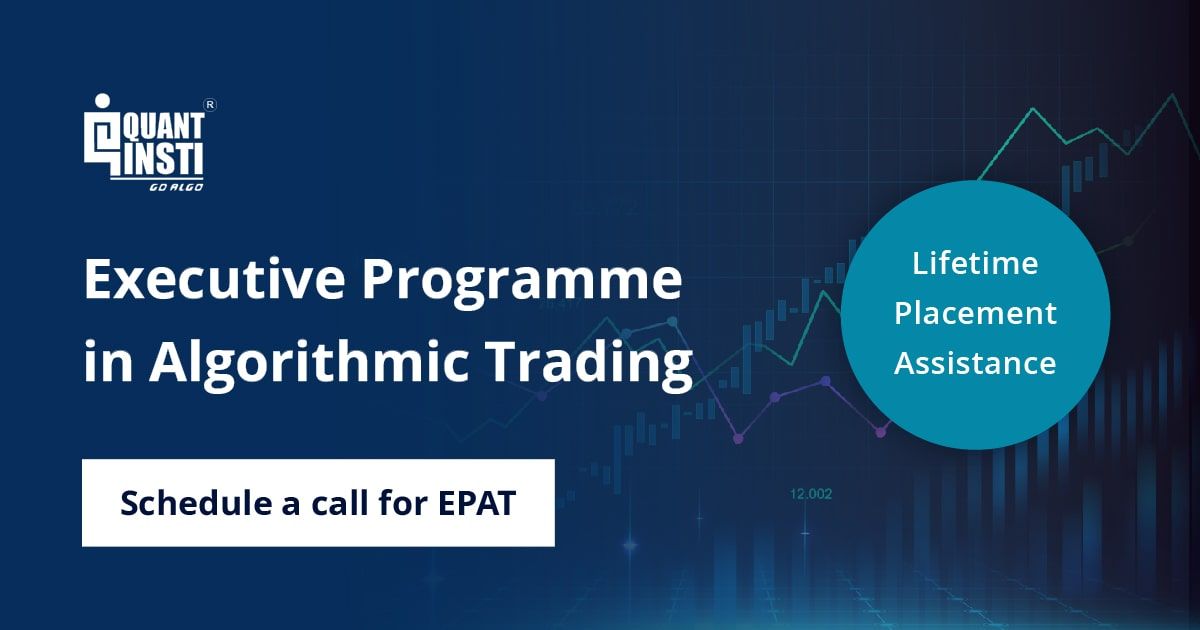Technology has already seeped into almost all the domains across the globe and is now progressing towards incorporating advanced concepts like artificial intelligence and machine learning. In this technologically developing world, it becomes necessary to have a certain level of technical awareness to learn to apply the concepts to real-world problems.
Daniel Vukota, Quantitative Trading Data Analyst, entered into the field of algorithmic trading and excelled in it with his technical expertise and knowledge about Statistics.

Here’s our conversation with Daniel
Hi Daniel, tell us about yourself.
I have a Bachelor in Statistics and 20 years of programming experience in Oracle applications, various databases, data integration and transformation, and data analytics and business intelligence. I have always been fascinated with problem-solving and data exploration in trying to understand the behaviour of why something occurred, is occurring and can possibly occur. I consider myself to be a creative and curious individual and love arts & crafts, painting, writing, reading, cooking, woodworking, playing music, cinema, and travel.
When did you begin trading and what motivated you to explore the field of Algorithmic Trading?
My brother owns an investment firm and he started out as a trader and was looking to possibly hire someone who could use technical analysis and automation to enhance his trading practices. So he suggested that it might be something I would be interested in and could work with him as well. I also have a lot of experience in programming and have a degree in Statistics so it would fit right into what was required to break into the field.
Coming from a technical background, what skills were you looking to upgrade or enhance?
I was looking into learning and applying Python to create trading strategies.
What made you choose EPAT to achieve your objectives?
It offered a good foundation and a broad spectrum on the different aspects of quantitative trading concepts, tools and theory and also coursework and exams were required to get a reputable certification.
Tell us about your experience.
I enjoyed some of the coursework, however, I did find it difficult to keep up with as I was working full-time in a demanding job as a software developer. I found the Statistics aspects and Python programming very interesting and useful. Some basic training on financial instruments would have helped me understand the charting and the fundamentals of the stock markets in a better way.
How are you applying the skills and knowledge acquired through EPAT in your professional life?
I am using some of the basics in Python code to build strategy backtesting code.
What message would you like to share with aspiring quants and algo traders?
I would encourage aspiring quants to read as many books and look into as many internet resources out there to expand on knowledge in order to be more successful and knowledgeable in the field.
Daniel’s story demonstrates how anyone can leverage their skills by applying it to different fields like algorithmic trading. With the right set of skills, guidance and support, one can be a part of the consistently growing domain of Algorithmic Trading. Executive Programme in Algorithmic Trading (EPAT®) does just that. Its comprehensive curriculum covers training modules like Statistics & Econometrics, Financial Computing & Technology, and Algorithmic & Quantitative Trading and equips you to be a successful trader. Learn more about it here.
Disclaimer: In order to assist individuals who are considering pursuing a career in algorithmic and quantitative trading, this case study has been collated based on the personal experiences of a student or alumni from QuantInsti's EPAT® programme. Case studies are for illustrative purposes only and are not meant to be used for investment purposes. The results achieved post completion of the EPAT programme may not be uniform for all individuals.

